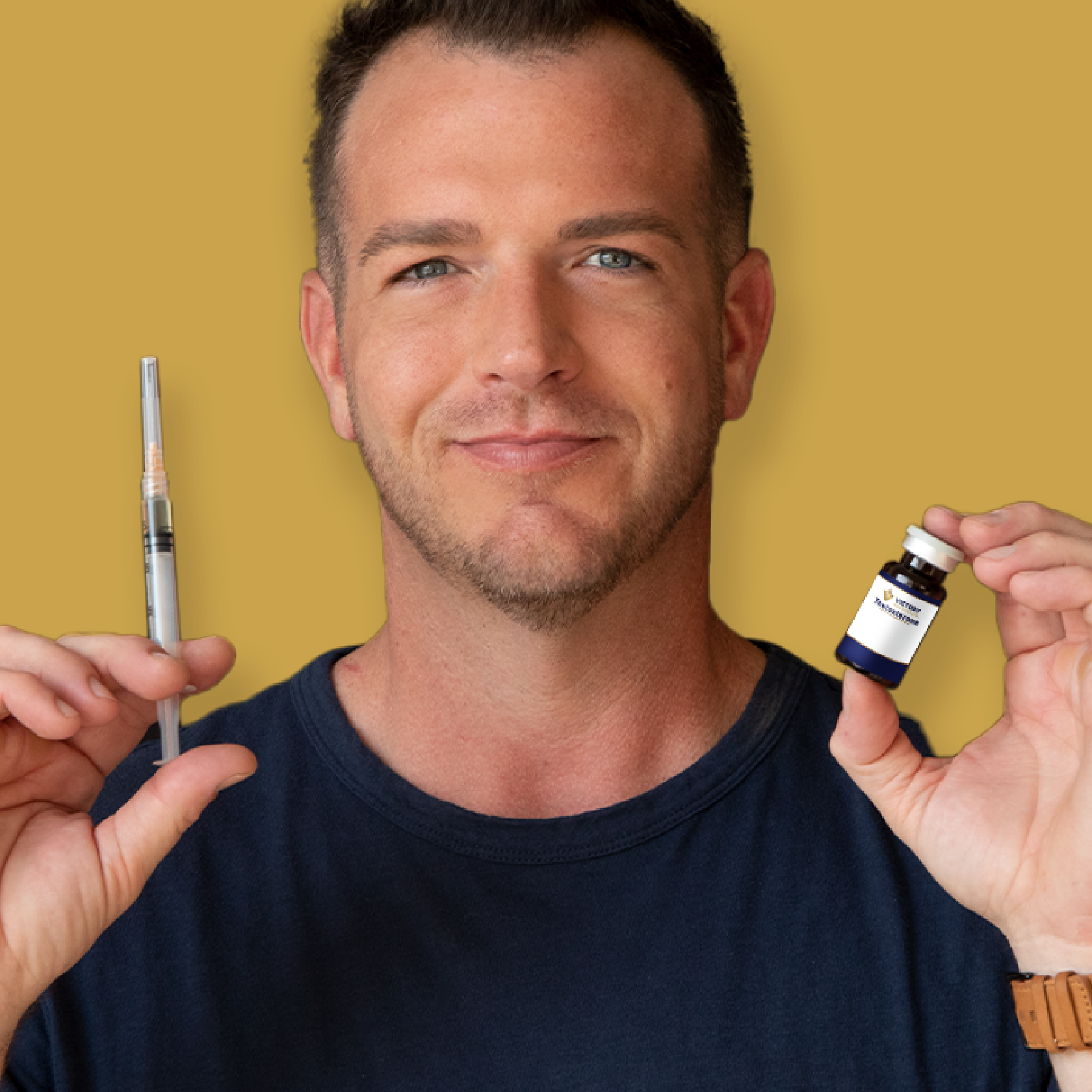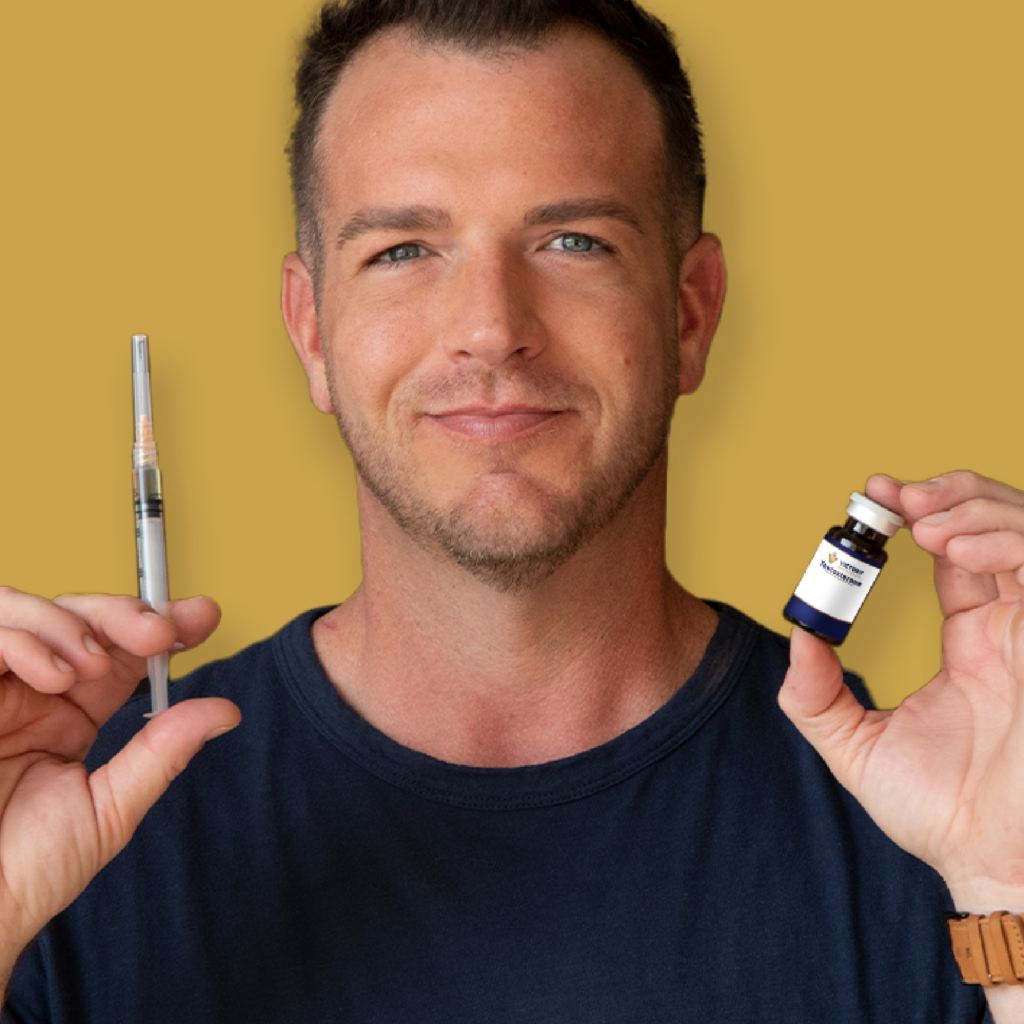Do Antidepressants Lower Testosterone Levels?
category: Testosterone

If you’re taking antidepressants or thinking about starting them, you’re probably wondering if they could mess with your hormones. For the men we see in our clinics, this typically involves the following: “Do antidepressants lower testosterone levels?”
It’s a fair question! Testosterone plays a crucial role in how you feel and function, from energy levels to sex drive and mood. In this blog post, we’ll break down whether antidepressants can lower your testosterone, what low T might look like, and what you can do about it. Let’s dive in.

Can Antidepressants Cause Hormone Imbalance?
Antidepressants work by adjusting chemicals in your brain, like serotonin and dopamine. They’re meant to help lift your mood and ease the effects of mental illnesses like depression and anxiety.
But sometimes, they can also influence other hormones—like testosterone and estrogen.
Some studies show that certain antidepressants might lower testosterone, while others suggest they could actually raise hormone levels. So, what’s the truth? Because antidepressants affect our neurotransmitters, experts believe they might also impact our endocrine system, which is responsible for hormone production.
Do Antidepressants Lower Testosterone Levels?
While there is some evidence that antidepressants can affect testosterone levels, the results are mixed. Some individuals may experience a small drop (or even an increase), while others might not see any hormone changes.
However, regardless of hormone levels in bloodwork, many people experience sexual side effects from antidepressant or anti-anxiety medications. Oftentimes, hormone replacement therapy won’t reverse those side effects.
It’s also important to note that anxiety and depression can sometimes be symptoms of low testosterone. Before starting antidepressants, it’s a good idea to rule out hormonal imbalances as a potential cause of mood disturbances. That way, you can choose the best treatment path for your situation.
The key takeaway here? Everyone reacts differently to medication – and we first need a baseline for your testosterone levels.
If you’re concerned about your testosterone levels, it’s important to pay attention how you’re feeling and talk to your healthcare provider if you notice any changes. They can help you figure out whether your antidepressants might be impacting your hormones and what steps to take if they are.
What Does Low Testosterone Feel Like?
Low testosterone can bring on a wide range of symptoms that can affect both your physical and mental well-being. Struggling with these side effects can make it tough to get through your daily routine. But, if you’ve been experiencing a slow decline for years, you may not even recognize it.
That’s why it’s important to chat with a healthcare provider if you think your hormone levels might be off. A simple blood test in one of our clinics can confirm if your T levels are low. Then, we can recommend a solution that fits your needs.
Here are some of the most common signs of low testosterone levels to be aware of.
- Fatigue: Feeling wiped out all the time? Low T could be to blame.
- Low Sex Drive: If your libido has taken a dive, it might be linked to decreased testosterone.
- Mood Swings: Irritability, depression, and just feeling off can all be tied to low testosterone.
- Muscle Loss: Struggling to maintain muscle mass or noticing a decrease in strength? Low T could be the culprit.
- Weight Gain: Low testosterone can lead to an increase in body fat, especially around your midsection. They don’t call it hormone belly for nothing!
- Brain Fog: Trouble focusing or remembering things? Low T might be playing a role.
How Can I Treat Low Testosterone?
If you think your testosterone levels might be low—whether it’s because of antidepressants or something else—help is out there. Testosterone Replacement Therapy (TRT) is a powerful way to get things back on track, and we’ll make sure it fits into your lifestyle without a hassle.
Many men successfully use antidepressants and TRT together without any issues. However, it’s important to work closely with your healthcare provider to manage both treatments and monitor for any changes. While TRT carries some risks, like increasing your red blood cell count or affecting cardiovascular health, it’s considered safe and effective when properly monitored by a knowledgeable provider.
Wondering how long it takes TRT to work? Most men start feeling small improvements, like a boost in energy, within a few weeks, but it might take a couple of months to feel the full effects—like a stronger libido. At Victory Men’s Health, we offer testosterone treatment in several forms:
- Injections
- Creams
- Pellets
In the video below, we break down the TRT options we provide for our patients.
Injections
Testosterone injections are the most popular method and can be administered either subcutaneously (under the skin) or intramuscularly (into the muscle). We customize the frequency of injections based on your individual needs, ensuring you get the right dosage at the right time.
After your initial injection, we’ll draw follow-up labs 90 days later to monitor your progress and adjust the treatment if needed. If you like the idea of not having to think about daily treatments, injections might be a good fit for you.
Creams
Do you prefer something a bit more hands-on? Testosterone creams are applied daily to an area of the skin as directed by your physician. They offer a slower, more gradual absorption of testosterone, which some men find more manageable.
Like with injections, follow-up labs will be drawn 90 days after you start using the cream to track your hormone levels and make any necessary adjustments.
Pellets
If you like the “set it and forget it” approach, testosterone pellets might be the way to go. Testosterone pellets are bio-identical and are inserted just under the skin in the buttock area through a simple, quick in-office procedure.
Once inserted, the pellets release testosterone steadily over 4-6 months, offering a low-maintenance option for long-term hormone balance. Follow-up labs will be drawn 4 weeks after pellet insertion and again at 4 months so we can make sure everything is on track.
Reclaim Your Stamina with Victory Men’s Health
If you’re worried that your antidepressants might be affecting your testosterone levels, you’re not alone. Understanding the potential link between your meds and your hormones is a great first step in taking control of your health.
At Victory Men’s Health, we’re here to help you navigate any concerns and find the right solution to help you live your fullest life. Ready to take the next step? Contact us today to schedule a consultation and let’s work together to get your testosterone levels back on track.